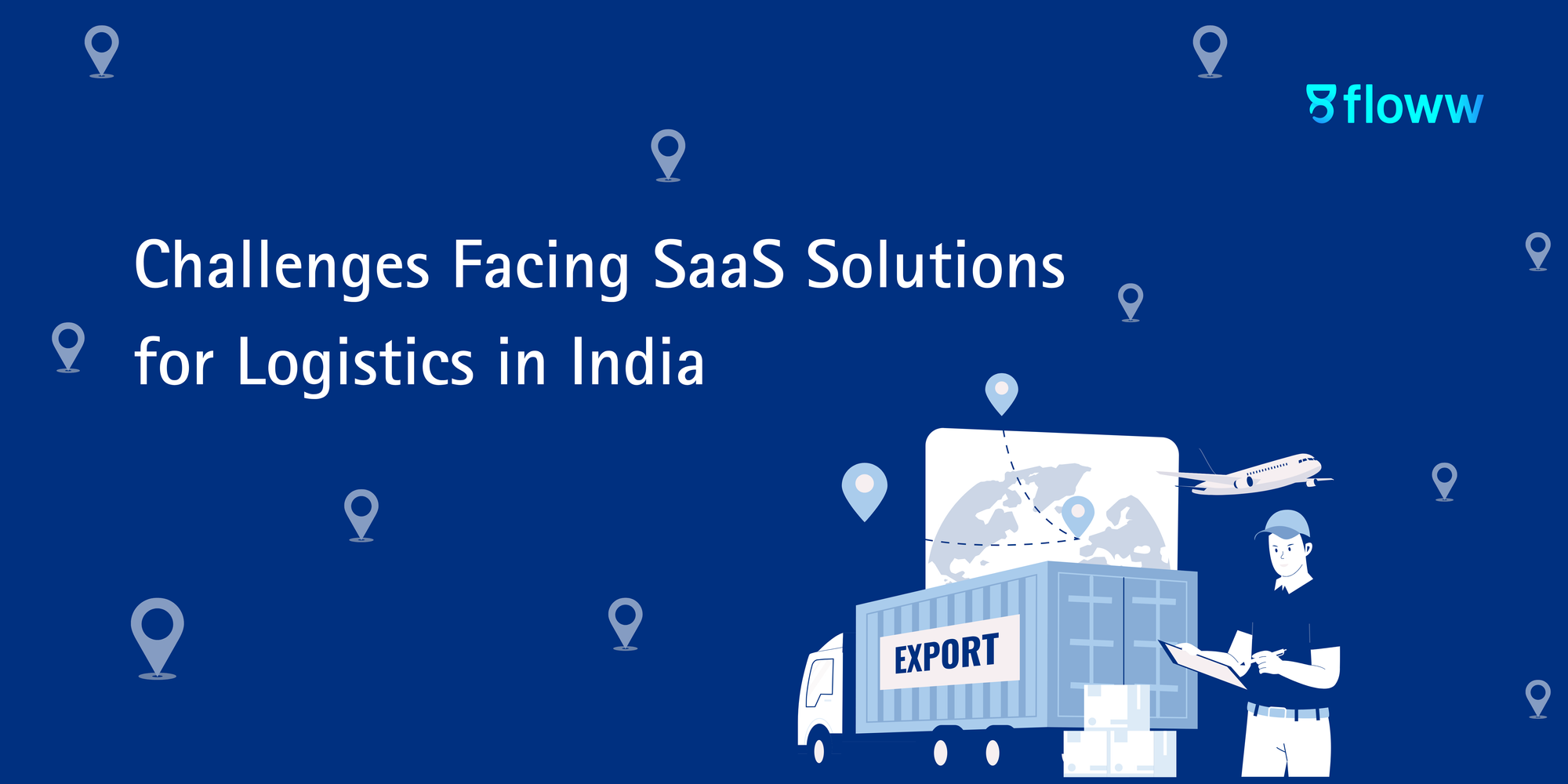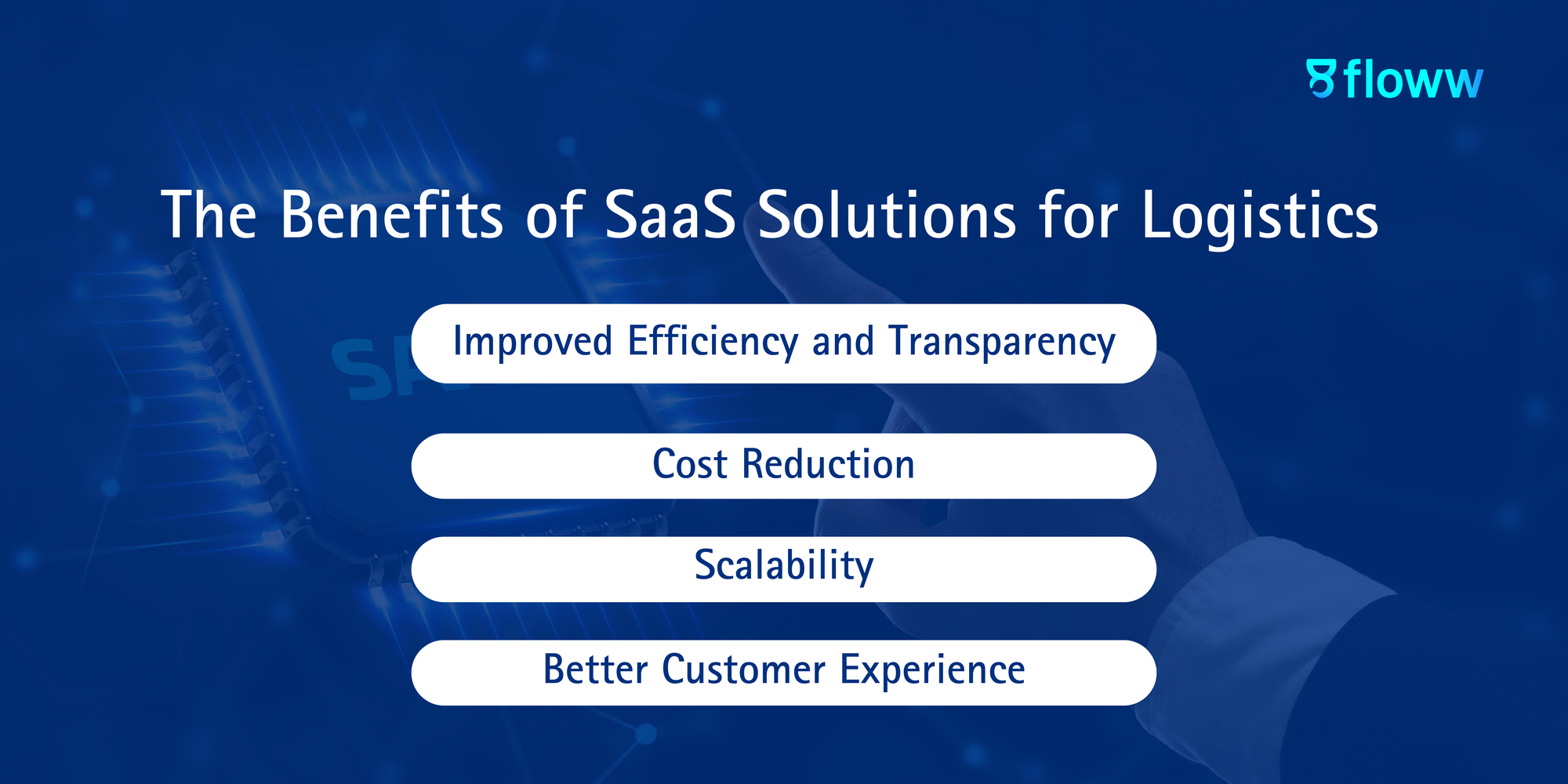Challenges Facing SaaS Solutions for Logistics in India

1. Resistance to Technological Adoption
India’s logistics sector continues to depend heavily on manual processes and outdated methods, posing a significant challenge for cloud-based logistics platforms to penetrate the market.
Change Aversion: Businesses hesitate to adopt new systems, fearing disruption in their established workflows.
Lack of Digital Skills: Operators and workers often lack the technical skills to use cloud-based platforms efficiently.
High Costs: Many small and medium-sized businesses (SMBs) perceive the setup and maintenance of digital logistics solutions as unaffordable.
2. Focus on Short-Term Gains
The logistics sector's operational complexities, from navigating GST regulations to managing demand fluctuations, lead many businesses to prioritize immediate fixes over long-term planning.
Strategic Deficiencies: Without a clear vision, businesses miss opportunities to scale through digital logistics solutions.
Unpredictability: Events like the pandemic and economic fluctuations have heightened reluctance to commit to long-term technologies.
Financial Barriers: Many companies are reluctant to invest in cloud logistics solutions due to high initial costs and uncertain ROI.
3. Expensive and Rigid SaaS Platforms
Most SaaS solutions for logistics cater to large enterprises, making them inaccessible for SMBs and individual operators.
1.Low Margins: Transporters operating on thin margins struggle to justify the investment without immediate and tangible benefits.
2.Inflexibility: Existing platforms lack customization options, failing to meet the unique needs of Indian logistics providers.
3.Enterprise Pricing: High subscription fees put advanced cloud supply chain solutions out of reach for smaller players.
Why SaaS Solutions for Logistics Are Essential
Despite these challenges, the potential of SaaS solutions for logistics is undeniable. These platforms offer a unified approach to managing supply chains, improving efficiency, and reducing operational costs.
By leveraging cloud-based logistics platforms, businesses can:
Adapt to Market Dynamics: Scale operations seamlessly to meet changing demands.
Boost Transparency: Provide real-time visibility into operations, fostering trust with customers and stakeholders.
Enhance Operational Efficiency: Automate repetitive tasks, reduce manual errors, and optimize routes.
Companies like Floww are leading the charge in enabling logistics businesses to realize these benefits.
How Floww is Redefining SaaS Solutions for Logistics
Floww stands out as a pioneer in providing SaaS solutions for logistics tailored to the Indian market. Its affordable, flexible, and user-friendly platforms empower businesses to modernize their operations without breaking the bank.
1. Affordable and Customizable Solutions
Floww offers competitively priced cloud logistics solutions, ensuring SMBs can access top-tier technology. With customizable features, businesses can adapt the platform to their unique workflows.
2. Simplifying Complex Processes
Floww’s digital logistics solutions address intricate challenges like e-way bill management, route optimization, and GST compliance. By automating these processes, Floww eliminates inefficiencies.
3. Mobile-First Approach
Recognizing India’s mobile-first demographic, Floww provides an app for end-to-end logistics management. Real-time updates, route planning, and seamless communication are now at the fingertips of logistics operators.
4. Fostering Inclusivity
Floww is committed to empowering even the smallest logistics players. By offering scalable cloud supply chain solutions, the company ensures that all businesses can compete in the digital era.
The Benefits of SaaS Solutions for Logistics
1.Improved Efficiency and Transparency
SaaS solutions for logistics eliminate manual errors and provide real-time tracking, fostering transparency and reliability.
2.Cost Reduction
Affordable cloud logistics solutions allow businesses to cut operational costs while maintaining high service standards.
3.Scalability
With cloud-based logistics platforms, companies can scale operations seamlessly to accommodate market growth.
4.Better Customer Experience
Real-time updates and faster deliveries through digital logistics solutions enhance customer satisfaction and loyalty.

Addressing Adoption Barriers:
For SaaS solutions for logistics to achieve their potential in India, businesses and policymakers must address key barriers:
1.Localized Solutions: Developing platforms tailored to the needs of Indian SMBs, addressing unique logistical challenges.
2.Government Incentives: Subsidies and tax breaks for businesses adopting cloud-based logistics platforms.
3.Digital Literacy: Training programs to equip workers with the skills to manage cloud logistics solutions effectively.
The Role of Floww in Shaping the Future
Floww is not just another SaaS provider; it’s a partner in the digital transformation journey of Indian logistics businesses.
The Future of SaaS Solutions for Logistics in India
As India's logistics sector grows, the adoption of SaaS solutions for logistics will become a necessity rather than an option. Companies like Floww are paving the way for a digital-first logistics ecosystem, enabling businesses to thrive in a competitive market.
By addressing challenges like cost, accessibility, and scalability, cloud-based logistics platforms are set to revolutionize the industry. With government initiatives like the National Logistics Policy 2022 and innovative solutions from providers like Floww, the future of logistics in India is bright.


